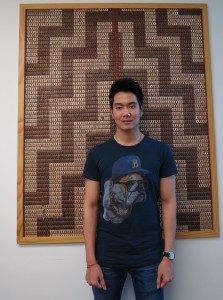New Zealand: Welcoming or lonely?
New Zealand may be able to lay claim to being the friendliest country on Earth but even that attitude is not enough to make visitors feel relaxed.
In fact, migrants are often left shocked and confused .
New Zealand’s isolation and seemingly endless amounts of quiet, open spaces can be the very things that are off-putting – despite being one of its biggest selling points.
Cambodian international student Chan Ratanak, says he felt isolated and lonely in his first year studying.
“The first year was very difficult, being an international student, because of the culture, the food, lifestyle…a big thing is the long distance from my family.”
Dealing with the pressures of tertiary study, a part-time job, and missing his family, the feelings were understandable. But the coping mechanisms for these feelings that Chan had in his family in Cambodia, were suddenly gone.
Chan is able to visit his family twice a year, a very welcome break.
“The reason I visit there often is because here it is very silent, very quiet, and so in the school holidays all of the international students go home.”
“Sometimes the silence is good, but it is boring…what are the activities that make you forget about that?”
Chan’s mother accompanied him for the first two months of his stay in New Zealand. He said she had to leave, because it was too quiet for her.
Not only is there a lack of physical distractions, the attitudes in our laid-back and largely secular country are often confusing.

finds New Zealand’s quiet nature, uninteresting.
Photo taken by: Quintessa Davies
Chan, a Buddhist along with approximately 95 percent of the Cambodian population, has found himself in a country where religion often is looked at with disdain.
As stated in the Te Ara Encyclopedia of New Zealand, “In the early 2000’s almost a third of New Zealanders described themselves as having no religion, and many churches had been sold and converted to other uses. Atheism and secularism have a long history in New Zealand, with freethinkers, rationalists and humanists all forming their own organisations.”
But Chan is also a teenager like any other. The thing he misses the most about Cambodia, he says, is his friends.
“I know people here are very friendly, but you know, like, feelings? It’s kind of different.”
Chan also struggles to understand Kiwi attitudes towards politics. He was born after the 1970s, but as someone who hails from a country that was subjected to brutal genocide under the regime of the communist Khmer Rouge, it seems natural that he would think New Zealanders are lucky.
“In New Zealand, everything they [the government] do is for the people, and there is no corruption. But in Cambodia, there is quite high corruption.
“But some people don’t like the New Zealand government, I hear a lot of people don’t like it, and I don’t know why.”
Chan will be returning home after he graduates.
Read More: New Zealand




